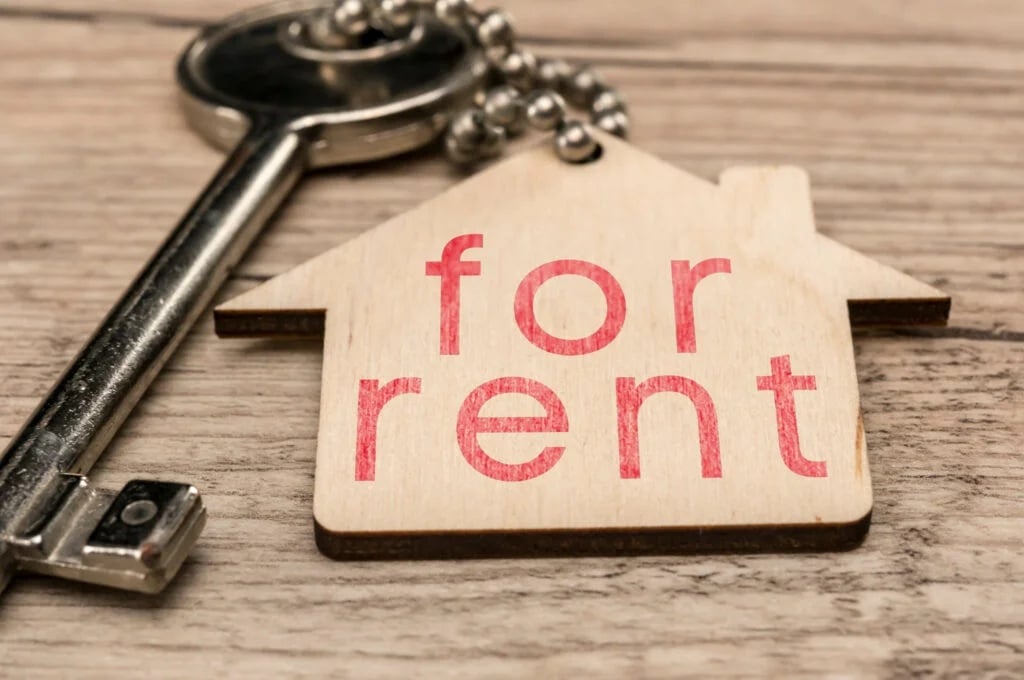Exit Strategies for Pre-Construction Investors

So Ontario’s pre-construction condo market has basically flatlined, we’re talking 92% under the 10-year average, which is… yes, pretty brutal. Properties that used to get snapped up in days? They’re just sitting there now. Like that casserole your aunt brings to every potluck that nobody touches.
So what now?
Do you cut your losses and run? Wait it out and hope things turn around? Try to somehow make money on a unit that’s still mostly blueprints and promises?
That’s what I want to dig into here. I’m Jatin Gill, and I’m going to walk through the actual options you’ve got for pre-construction exits. Because honestly, knowing your moves before you’re forced to make them? That’s probably the only advantage you’ve got when the market’s this frozen.
Read: Pre-Construction Condos 101: A Beginner’s Guide
Understanding the Pre-Construction Investment Landscape
Okay, context time. Pre-construction condos have always been this weird exercise in delayed gratification, you drop 15–20% over a few deposit instalments, then basically just… wait. Two years. Sometimes five. Hopefully, at the end of it, you get keys and some equity appreciation. In theory, pretty straightforward!
Read: Buying Pre-Construction: What are Deposit Structures?
Except 2025 decided to throw that entire playbook out the window.
We’re seeing delays stretching six to twelve months, like it’s normal now. Projects getting axed outright. And the GTA? Sales numbers we literally haven’t seen since the ’90s. I’m not being dramatic; it’s genuinely that frozen.
Read: What to Do if Your Pre-Construction Condo Project Gets Delayed or Cancelled
Why does any of this matter when you’re thinking about exits? Well, because timing isn’t just important; it’s everything. Miss your moment, and that investment you were excited about starts feeling more like dead weight you’re stuck carrying.
Here’s what’s actually forcing people’s hands right now:
- Market volatility: Sure, interest rate cuts might boost resale numbers by something like 12%, but that’s for houses. Condos? We’re looking at 2026 before anything meaningful happens. So yeah, buckle up.
- Financing hurdles: Banks have turned into absolute hawks when it comes to appraisals. Shortfalls aren’t some rare glitch anymore; they’re common, and they hurt.
- Regulatory environment: Tarion warranties give you some protection when builders drag their feet, which is nice. But then there’s the GST/HST hit on assignment profits, which is decidedly not nice.
- Investor dilemmas: If you literally can’t close? There are workarounds, debt relief programs, restructuring options, but you better know they exist before you’re scrambling in a full-blown crisis.
Getting a handle on all this isn’t just “good to know” stuff. It’s straight-up survival mode. Markets don’t hit pause for anyone, and your exit strategy shouldn’t either.
Read: New Home Warranty Programs (Tarion) Explained

Exit Strategy 1: Selling on Assignment
Selling on assignment. Sounds fancy, right? Basically, you’re flipping your purchase agreement to someone else before closing. You never actually take possession, but you get out, and maybe pocket a profit, without juggling a mortgage or moving boxes.
Here’s the reality: year-end deals can be a goldmine if you know where to look. Builders need consent, and yes, there’s a fee, anywhere from $1,000 to $5,000, but the upside? You avoid holding costs, dodge potential delays, and if the market nudges upward, you can sell at a tidy premium.
Just remember, CRA sees profits here as business income.
Pros of selling on assignment:
- Quick liquidity: Get out without closing or mortgage headaches.
- Profit potential: Market rebounds can translate into instant gains.
- Avoid holding risks: No worries about construction delays or unexpected value drops.
Cons of selling on assignment:
- Tax implications: GST/HST applies to your profit, plus potential capital gains if flipped quickly.
- Builder restrictions: Consent required; administrative fees apply.
- Market challenges: Fewer buyers in a frozen market, like now, could force discounts.
When to consider: Short-term horizons, urgent cash needs, or if your property value has risen pre-closing. Avoid if the market’s sluggish or dropping.
Steps to take:
- Research comparable assignments to gauge demand.
- Get builder approval for the transfer.
- List through a real estate agent familiar with assignments.
- Prepare for taxes and compliance, don’t wing this part.
Selling on assignment isn’t magic; it’s strategy. And done right, it can be a lifeline when the market is moving at a glacial pace.
Read: How to Assign Your Pre-Construction Condo Contract

Exit Strategy 2: Selling After Closing
The classic move: you finally take possession, hold the keys, maybe even unpack a few boxes, and then sell. Selling post-closing has a certain allure. You get full control of the unit, can stage it, tweak it, or just let it shine, and potentially capture the full appreciation the market eventually offers.
There’s the tax angle. If you sell within two years, CRA treats it as business income, fully taxable. Hold longer, and capital gains kick in at 50% taxable, which is a lighter bite, but still something to plan for.
Pros of selling after closing:
- Higher potential returns: Full appreciation, plus any amenities that add value.
- Control: Stage, renovate, or even furnish for better appeal.
- Tax advantages: Capital gains only partially taxable if held long enough.
Cons of selling after closing:
- Carrying costs: Interim occupancy fees, mortgages, and condo fees don’t magically disappear.
- Market risk: Values can dip, forcing a loss if you miscalculate timing.
- Financing hurdles: Shortfalls if your appraisal comes in lower than expected.
When to consider: Ideal if you’re bullish on long-term growth, think Hamilton or emerging hotspots. Or if rental yields are low and you’re thinking personal use, this gives you flexibility.
Read: Everything You Should Know about Interim Occupancy in Canada
Steps to take:
- Secure financing and close the deal.
- Stage or enhance the property to maximize appeal.
- Market aggressively using comps and trends.
- Navigate land transfer taxes and other closing costs carefully.
- Leverage Ontario’s 10-day cooling-off period to review contracts and Tarion warranties for any defects.
Selling after closing isn’t risk-free, but it’s a way to play the long game, capturing the upside while staying in control. Done smartly, it can be far more lucrative than a quick assignment flip, if you have the stomach and the strategy to wait.

Exit Strategy 3: Renting Out the Property
Sometimes the best play is to just… not sell.
Instead of trying to unload your unit in this market, you hold onto it and make it earn its keep. Renting out your pre-construction condo after closing can actually turn the whole thing into a cash-flow asset.
Now, let me be clear: this isn’t some “mailbox money” fantasy where you just collect cheques while sipping piña coladas. There’s paperwork. Tenant texts at 11:47pm. That one faucet that decides to leak on a long weekend. But here’s the thing, it can cover your mortgage, keep the lights on financially, and buy you time while the market gets its act together.
Pros of going the rental route:
- Steady income: Even when the market’s dragging its feet, rent payments can handle your mortgage and condo fees without you bleeding cash every month.
- Tax perks: You get to deduct mortgage interest, maintenance costs, condo fees, basically a bunch of stuff that makes April less painful. Plus, you defer capital gains, which is nice.
- Long-term appreciation: Ride out this 2025 deep freeze, then cash in when things actually bounce back in 2026. Patience pays, theoretically.
Cons you need to know about:
- Management effort: This isn’t hands-off. Tenants need things. Stuff breaks. You’re basically on call. Forever.
- Liquidity lock: Your money’s stuck. If you suddenly need it for something else? Too bad, you can’t exactly liquidate a tenant!
- Vacancy risks: With inventory this high, rents could get squeezed. Don’t project best-case scenarios, or you’ll regret it.
When does this actually make sense? If you’re chasing income over quick wins, if you can handle a slower-moving market without freaking out, or if you’re trying to diversify what you’ve got going on.
Steps you’ll need to take:
- Get occupancy permits and condo board sign-off. No shortcuts here.
- Screen tenants like your financial life depends on it, because it kind of does.
- Price your rent based on what’s actually happening in your building and area. Not what you wish you could charge.
- Follow Ontario’s Residential Tenancies Act to the letter. Security deposits, lease terms, all of it.
- Budget for vacancies and surprise repairs. They will happen.
Renting isn’t the adrenaline rush of flipping an assignment or the big payday of selling post-closing. But it’s stable. Sometimes boring reliability is exactly what keeps you in the game.
When to Choose Each Strategy: Factors to Consider
So, how do you actually figure out what to do with your unit? Because it’s not like there’s some magic formula, “flip, sell, or rent” doesn’t really cut it when the market is acting unpredictably. Your timing matters. Your personal situation matters. How much risk you can stomach without losing sleep? That matters too.
Think of it this way: you’ve got tools in your toolbox. Great. But using a hammer when you need a wrench? That’s how people lose money, and… sanity!
What you need to think about:
- Market timing: Is everything frozen solid right now? An assignment might be your best escape hatch before things get worse. But if interest rates keep dropping and condos finally catch some momentum? Holding till closing could actually pay off bigger.
- Financial situation: Got healthy cash flow and can handle carrying costs without panic? Rent it. Need money now? Assignment’s probably your move.
- Risk tolerance: If you’re the patient type who can play the long game, holding for rental income or waiting on a delayed resale might work. If uncertainty gives you hives, assignments offer a cleaner, faster exit.
- Goals: Chasing short-term profit? Assignments. Trying to build something longer-term or create a steady income? Renting’s more your speed.
- External factors: Taxes and regulations aren’t optional considerations; they’re deal-changers. GST/HST hits on assignments. CRA’s rules on flipped properties. New builder policies that pop up out of nowhere. All of it can completely flip your math.
Fact: there’s no universal “right answer” here. Every option’s got upsides, downsides, and that perfect window of opportunity that’s easy to miss. The real skill is understanding yourself, reading the market without rose-coloured glasses, and knowing how much you’re willing to stretch… or wait.

Risks, Mitigations, and Legal Considerations
Pre-construction investing can go sideways fast. It’s not all victories and profit celebrations. Especially right now, with the market volatility, there are landmines everywhere. Delays that stretch forever. Financing that falls through at the worst possible moment. Tax bills you never saw coming.
But the good news is, most of this stuff is avoidable if you’re paying attention and getting the right people in your corner.
Risks you need to watch for:
- Value drops: Yes, even “prime locations” aren’t bulletproof when the market decides to take a nap. Don’t assume your unit’s magically immune.
- Tax traps: CRA’s flipped property rules, GST/HST smacking you on assignments, capital gains sneaking up; these catch people off guard all the time. Usually, the ones who thought they had it all figured out.
- Legal issues: Assignments need builder approval and full transparency. Skip a step or fudge the details? Congrats, you just voided your exit strategy.
How to actually protect yourself:
- Do the boring homework nobody wants to do. Research the neighbourhood properly. Check the builder’s track record. Are they reliable, or do projects with them turn into multi-year sagas? Look at historical pricing. It’s tedious, but it matters.
- Talk to a tax professional before you make any big moves. I know, I know; it’s not exciting and it costs money. But it’ll save you way more than it costs when tax season rolls around.
- Hire people who actually know what they’re doing. Experienced real estate agents, lawyers who’ve handled this stuff before. They catch the details you’ll miss and handle the compliance headaches so you don’t have to.
Why you shouldn’t try winging this: Going solo might feel cheaper upfront, but it gets expensive real quick when things go wrong. A good agent or lawyer doesn’t just help you avoid disasters; they spot opportunities you wouldn’t have noticed on your own.
Sometimes what separates a clean, profitable exit from a total mess is literally just knowing who to call before you need them.
Read: Why You Need a Real Estate Lawyer for Your Property Purchase
Bottom Line
Look, there’s no magic “perfect” exit here. Just the one that actually makes sense for your situation; your goals, your finances, how much uncertainty you can handle without spiralling.
Assignments? Fast and liquid. Get out quick if that’s what you need. Selling after closing? That’s where the real money might be, but only if you’ve got the patience to wait it out. Renting? Steady income while the market sorts itself out, which isn’t flashy, but it works.
The whole game is knowing which move to make and, just as important, when to make it.
Need professional help? Contrast us today. Whether it’s mapping out an exit strategy, getting real insights on where the market’s actually heading, or just building a roadmap that makes sense for your investment. We’ll be happy to help.
Jatin Gill, an esteemed authority in real estate writing, is celebrated globally for his unparalleled expertise. With over 20 years in the industry, he has authored more than 1,000 SEO-friendly articles covering every facet of real estate. Specializing in pre-construction projects, Jatin's extensive knowledge spans all real estate topics. His content is a go-to resource for anyone seeking comprehensive, insightful, and up-to-date information in the real estate market.
Learn MoreFAQS
Simply put, it’s transferring your purchase agreement to another buyer before closing. You never take possession, but you can exit the investment early, often pocketing a profit.
No. Builders must consent, and there’s usually a fee ($1,000–$5,000). Always check the fine print before planning your exit.
If you’re in a growth area, patient, and want full appreciation, selling after closing can be more profitable than a quick assignment.
Yes, tenant issues, vacancies, and maintenance can eat into profits. But long-term, it provides steady cash flow and potential appreciation.
Absolutely. Some investors assign one unit, rent another, and sell post-closing when timing aligns; it’s all about flexibility.
Additional Resources















Awards & Achievement










Subscribe for the Latest Condo Deals
Apologies, our subscription list for this month is now full. Please register on our website to secure your spot for next month. Thank you for your interest!

